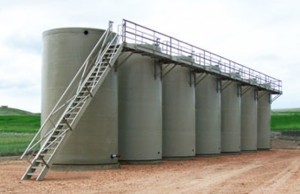The North Dakota Industrial Commission (NDIC) plans to hold a public hearing in the next few weeks to determine ways to reduce the volatility of Bakken crude before it is stored or transported.
The Wall Street Journal (WSJ) reported North Dakota officials are considering requiring oil & gas companies to treat Bakken crude before it is loaded onto trains. Stabilization, which is common in similar shale plays like the Ealge Ford Shale, is also being discussed among officials.
While some industry players argue Bakken crude shouldn't be subject to stabilization, a process by which the vapor pressure of crude oil is lowered, making it less volatile, they may not have a choice in the matter. According to the WSJ, the federal government has been weighing the idea of making stabilization a requirement.
Differing Opinions on Bakken Crude Volatility
In support of the argument for Bakken crude testing and possibly stabilization, the Pipeline and Hazardous Materials Safety Administration (PHMSA) released a report in July of this year saying crude oil from the Bakken region in North Dakota tends to be more volatile and flammable than other crude oils. During the same month, the Department of Transportation (DOT) also proposed phasing out older DOT-111 tank cars for the shipment of packing group I flammable liquids within two years.
Read more: DOT Seeks New Rail Car Design and Bakken Crude Testing
By contrast, in May of this year, The American Fuel & Petrochemical Manufacturers (AFPM), an industry trade association, released findings from a study that examined the characteristics of Bakken crude oil. In their report, the AFPM claims Bakken crude is within the safety standards for current rail car designs (DOT 111 tank cars), and is comparable to other light crudes.
Read more: AFPM Study Finds Bakken Crude Meets Current Safety Standards for Rail Car Design
Read more at wsj.com

